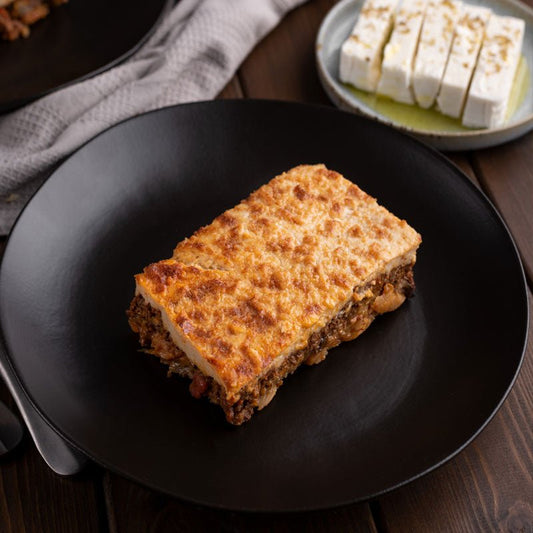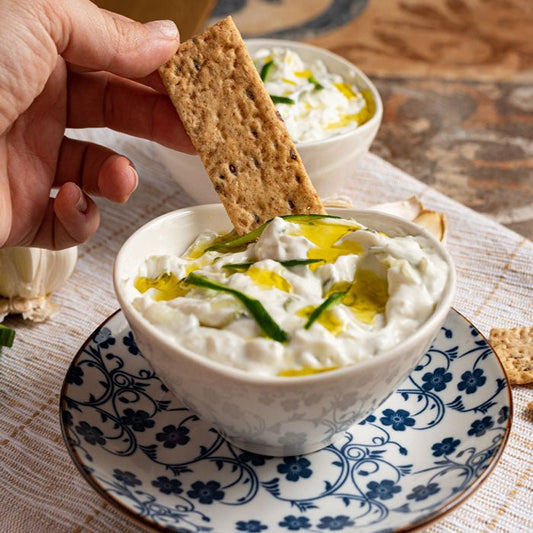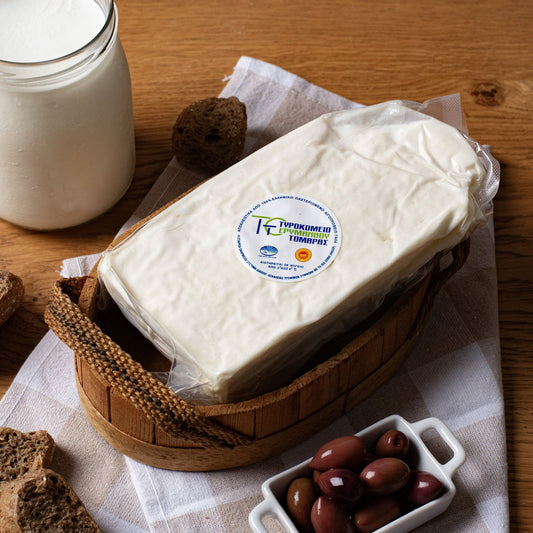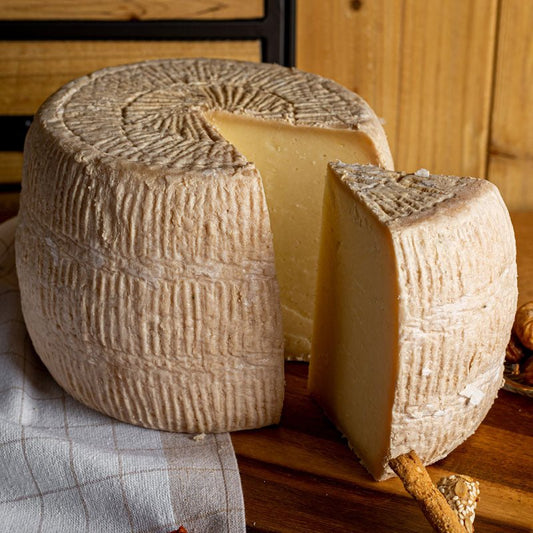
The Greeks love their food. They love to eat and feed others. Greece is a place where you are guaranteed never to go hungry. Imagine the Greeks eat up to five times a day.
Greek cuisine mainly uses fresh local ingredients such as Mediterranean vegetables, olive oil, Greek yogurt, Greek honey, feta cheese, various types of fish and meat, and muesli. Greek dishes are delicious and packed with a variety of fresh and dried herbs. If you travel to the Mediterranean to sample Greek cuisine, be sure to try at least some of these delicious dishes.
Greek cuisine as an integral part of the Mediterranean diet

The Greek diet is an important part of the Mediterranean cuisine and has something in common with the traditional cuisine of Italy, the Balkans, Turkey and the Levant.
Although each country has its own range of food and culinary traditions, many recipes are similar in terms of ingredients and nutritional value.
The Greek gastronomic identity is rich and deeply rooted in time. Greece has one of the oldest gastronomic traditions in the world. It's a tradition of flavours, materials and styles that goes from prehistory to the present. In every Greek recipe, the combination of fresh ingredients and culinary techniques is a very interesting gastronomic journey into the history of Greece.
Ancient Greek food has been studied recently. The written texts of antiquity impressively describe the eating habits of our ancestors on the Greek island and on the Greek mainland.
Vegetables, olive oil, granola, fish, wine, and meat are commonly used in modern Greek cuisine. Other important products are olives, cheese, eggplant, zucchini, and yogurt. The main characteristics of Greek sweets are nuts and honey, while various fruits are often used. The latter are the basic material for the production of the so-called spoon sweets.
Another important aspect of Greek cuisine is the appetizers, also known as "mezedes", a timeless name known around the world. Mention a traditional selection of side dishes usually served in taverns and restaurants with wine, ouzo or tsipouro.
Since the ancient times, the way food and sweets were prepared in different parts of the country, from place to place, household to household, and restaurant to restaurant, contributed to the creation of the famous traditional Greek cuisine.
The inhabitants of the Greek provinces were the editors of Greek cuisine and dishes! They set their tastes, their own special flavours and created local traditional cuisine based on their local products.
Local conditions play a role in shaping local cuisine, such as the natural wealth of each region, its climate, and the influences each region has received from different peoples and different traditions.
Contrary to what many people believe, the ancient Greeks were essentially vegetarians. In very exceptional cases they ate meat. The rest of the time they ate various types of porridge, cereal, and legumes with bread, vegetables, and lots of fish.
Traditional Greek cuisine, based on ingredients rather than complex techniques, had to invent many ways to use the few seasonal produce. And that incredible ingenuity of Greek cuisine!
Greek cuisine has been influenced by a variety of different cuisines and traditions. The influence of Turkey is evident today in starters such as tzatziki, but also in main dishes such as Imam Baildi (baked eggplant with a filling of tomatoes, onions, garlic and parsley), moussaka and the famous sweets baklava and kataifi.
It was also influenced by the Venetian tradition, especially in the areas of the Ionian Islands, where the Venetians lived for many years as conquerors, leaving the Ionian Islands people with a taste for pasta and various pies.
The result of this cultural meeting along with the imagination of the Greek people and the exceptional quality products of the Greek land, formed the Greek culinary tradition. One of the richest and most delicious cuisines in the world.
Greek cuisine offers a breathtaking, rich selection of dishes and drinks and is the cultural heritage of the centuries. In every Greek recipe, the combination of fresh ingredients and culinary techniques is a unique gastronomic journey into the history of Greece.
But what are the most classic Greek foods?

Let's take a look at the most traditional Greek food that you will surely have heard again!
Characteristic of the Greek table is the variety of dishes in which nobody monopolizes the taste, but all together form a delicious ensemble.
The queen of Greek cuisine today is the well-known horiatiki or Greek salad, which consists of cucumbers, tomatoes, onions, feta cheese, olives and oregano. All of this, of course, would not have the same value if it were not accompanied by Greek oil.
Oil, with its high nutritional value, is the basis of Greek cuisine. It is not left out in any Greek dish and it is no secret that it is used in abundance by the "older" housewives, our grandmothers! You can try it with oven baked bread.
You will definitely know Moussaka! Moussaka is the standard dish in our national cuisine. We would say that this food is a symbol of Greek cuisine and one of the most famous Greek dishes: it includes eggplant, potatoes, ground beef and bechamel sauce. Tourists already know and love it from Greek restaurants in their homeland.
Homemade moussaka is one of the greek food recipes prepared for family tables by mothers and grandmothers. It is urban food made by housewives who can spend a lot of time preparing it. It is a relatively "hard" meal as many describe it.
There are four stages of cooking: frying for eggplant and potatoes, boiling for bechamel, deep-frying for minced meat with tomato sauce, baking at the end. You can find the traditional recipe here, or better yet, buy it ready-made and try it right away!
Here you can find the traditional Greek recipe for moussaka.
Another food that stands out in Greece is the traditional pita breads. Using the right filo pastry and feta or greek meatballs you can make so many different flavours. And let's not forget the lemon juice added on top of almost every recipe.
Also, pies for every day, pies for special occasions, easy to prepare or more difficult, salty, sweet, with or without phyllo pastry. Vegetable cake, cheesecake, spanakopita (spinach pie), cabbage pie, minced meat pie, pumpkin pie, chicken pie and the list goes on and on. The spinach pie/ spanakopita has its honor in Epirus, but also in the rest of Greece!
Here you can find the traditional Greek recipe for spanakopita.
If we were to explain to a tourist what Greek food is, we would suggest a group of foods such as: Moussaka, gemista, dolmadakia, ladera, horiatiki, goat in a saucepan with potatoes. All these go well with red wine.

But let's not forget that Greece is a country with a wide variety of sweets. Yogurt with honey is a widespread and popular Greek dessert that is preferred at all times.
One of the most classic sweets offered in the villages and towns is the traditional Greek dessert of the spoon. These are sugary fruits of any season, which must be of excellent quality (quince, fig, orange, chestnut, apricot, cherry).
Also traditional are the syrupy sweets, which are mainly based on nuts (walnuts, hazelnuts, almonds, peanuts), homemade leaf, various dried fruits and finally honey, which gives these sweets a characteristic aroma and high nutritional value.
Well-known sweets are Galaktoboureko, Baklava, Kadaifi, Melomakarona, Halva, Ravani.
What is certain is that the choices of Greek food are innumerable and their taste is second to none!
At Greek Flavours you will find a wide variety of Greek food and Greek sweets.

















